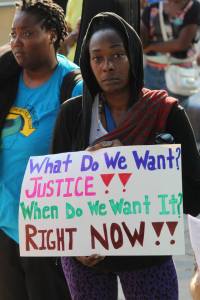I am writing to share my disappointment in your new Disney Princess line.
I don't know how lucrative the partnership is for you, but I do not WANT my children playing with Disney Princess Legos. My 7-year-old daughter doesn't want it either. When she saw the
 |
| This looks like it would take my daughter about 2 minutes to put together. |
My daughter's entire landscape is inundated with pink and princess. We cannot escape Disney. We cannot escape their unparalleled marketing machine. But there have always been some safe, dependable alternatives - like Lego - that leveled the playing field for girls and provided a more neutral space for play and discovery.
Lego used to be a gender-free brand, a space where kids could create and build and be free of boundaries. Now, it's hard to find a gender-neutral offering in your "boy" and "girl" aisles. Why do you want to shove our girls into pink and purple boxes that cannot hold their creativity? Why do you want to reinforced the silly idea that boys only want characters that fight and shoot?
 |
| The largest, most interesting and complicated set in the collection. For $70, your little princess can build "Cinderella's Romantic Castle." But don't worry about wasting *too* much time on the building. She can get right to "romance" with these handy pre-fab walls and gabillion decorative accessory pieces! |
I grew up in the 70s and 80s. Legos brought girls and boys together then. Now they push them apart. I only wish you were ashamed of what your company has become as so many parents like me are. Your company claims to take seriously its responsibilities to "build a better tomorrow" through your products. I wish, at last, you would begin to see how you betray that promise with such gender-restrictive products as the Disney Princess line.
Sincerely,
Heather DuBois Bourenane, parent of 2 Lego enthusiasts - a boy and a girl - who want to play together
Sun Prairie, Wisconsin
Note: This open letter has been published on my blog. I am happy to print your response should you want to make one. I'd be even happier to buy your products, should you decide to provide some gender neutral options that actually appeal to my kids.
 |
| Lego has changed. For the worse. Image source (and story of the model pictured here, now a doctor). |











